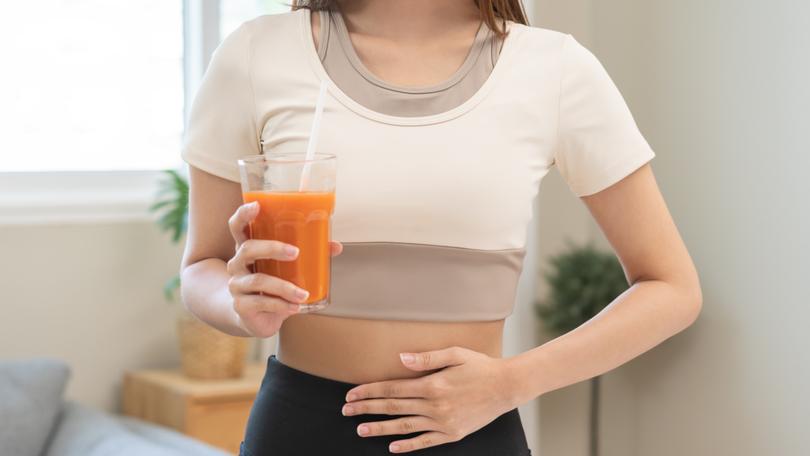SARAH DI LORENZO: How to beat the bloat with diet changes that will prevent digestive discomfort

No one likes that awful uncomfortable feeling of feeling boated. It can be frustrating and, in some cases, very painful, and can compromise your quality of life.
The reason why we bloat is because our digestive system has trapped air and water retention which leads to swelling and a somewhat tight feeling in the abdomen.
There are many reasons why people you might be bloated but the best way to treat it is to find the cause and make adjustments in the form of lifestyle or dietary changes.
Sign up to The Nightly's newsletters.
Get the first look at the digital newspaper, curated daily stories and breaking headlines delivered to your inbox.
By continuing you agree to our Terms and Privacy Policy.A more obvious cause is eating too fast or too much. When you eat too quickly, you can swallow air with your food.
When you overeat your stomach stretches, digestion slows and discomfort follows.
You know how people undo their belts or adjust their pants at meal times? That’s a sign you should eat less and take your time doing it — slowing to 20 chews per mouthful should help.
There are also many foods that naturally produce gas during digestion. The more known ones are legumes such as beans, chickpeas and lentils, but other culprits are cruciferous vegetables such as cabbage, broccoli, cauliflower and brussels sprouts.
Other gassy foods are carbonated drinks, dairy (for those who are lactose intolerant) and artificial sweeteners found in many drinks, jellies, yoghurts and many diet foods.
Consider taking some digestive enzymes or just minimise or avoid these foods especially for an event or travelling.
Constipation is another common cause. Infrequent bowel movements (three days apart or even longer) means stool builds up in the colon and air is trapped. This can be caused by poor diet, lack of fibre, dehydration or a sedentary lifestyle. Increase your fibre intake and eat lots of fruit, vegetables and whole grains. Get regular exercise and drink lots of water.
Many women bloat before and during their menstrual cycle due to the fluctuation in hormones slowing digestion and causing water retention.
Stay hydrated and enjoy lots of potassium-rich foods like bananas, oranges, avocado, beetroot and leafy greens.
Food intolerance would have to be one of the biggest causes of bloating.
People might be unaware they are lactose intolerant, need to avoid gluten (wheat, rye, barley) or have a FODMAP sensitivity, where the body struggles to digest certain carbohydrates found in some fruits, vegetables and grains.
I tell my patients to keep a food diary with a goal of finding the culprit foods and look for other foods that are tolerable with a similar nutritional profile.
Stress is something many people don’t think about with bloating. Stress can trigger a hormonal reaction which can slow down our digestive system.
Chronic stress can even cause a gut bacteria imbalance.
The long-term solution for this is to manage stress and increase your probiotic intake — take a supplement or enjoy probiotic rich foods like miso, tofu, tempeh, sauerkraut, yogurt or kombucha.
Tips on beating bloat
1 Always be well hydrated — you need 30ml per kg of your own body weight.
2 Make sure your diet has a good amount of fibre, including lots of fruit, vegetables and whole grains.
3 Get regular exercise, even walking after a meal can help.
4 Remember to chew slowly, manage stress, have a healthy diet and avoid carbonated drinks.
5 Have some peppermint tea after meals or at night-time or ginger tea.
If your bloating is persistent then reach out to your health care provider to investigate.

